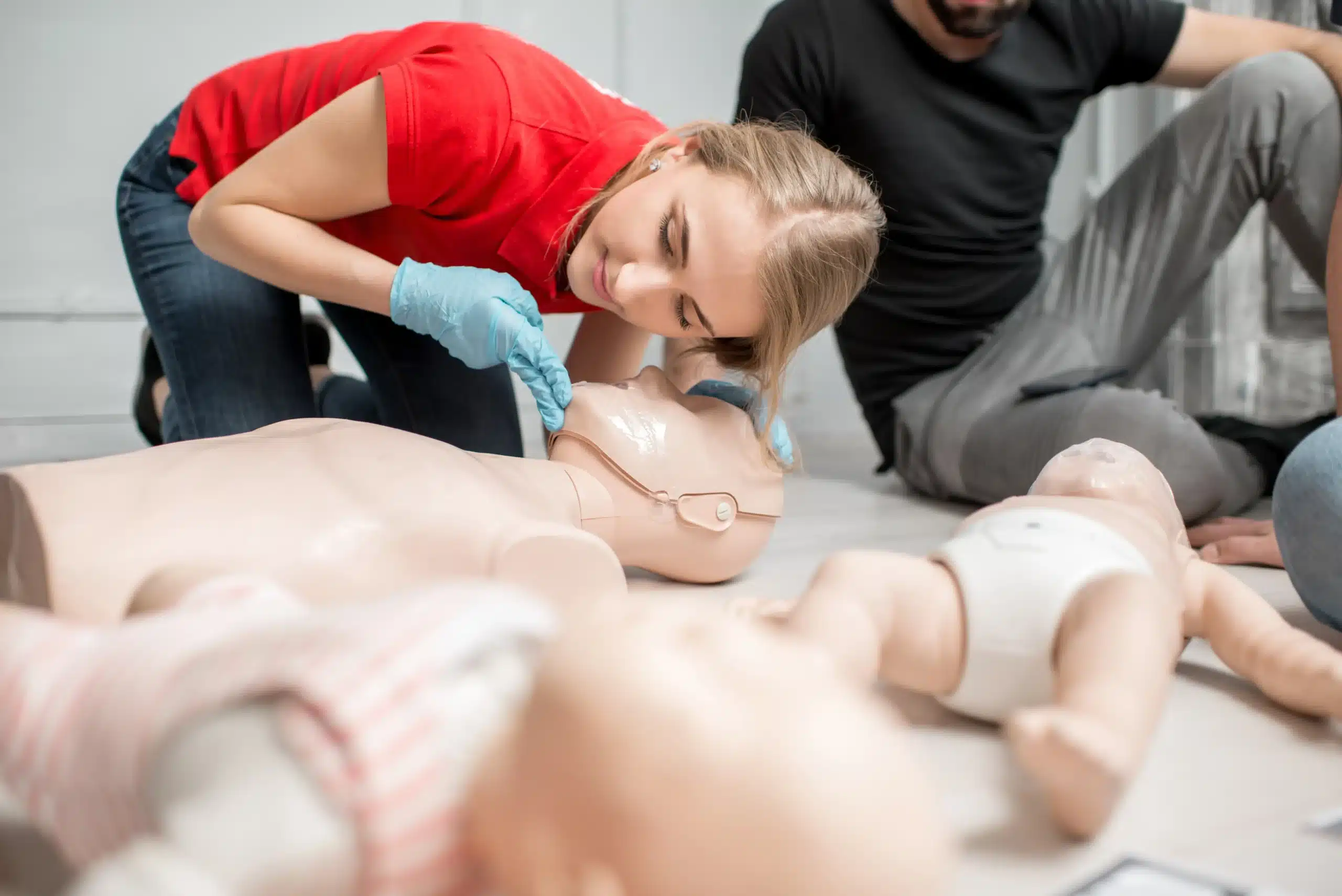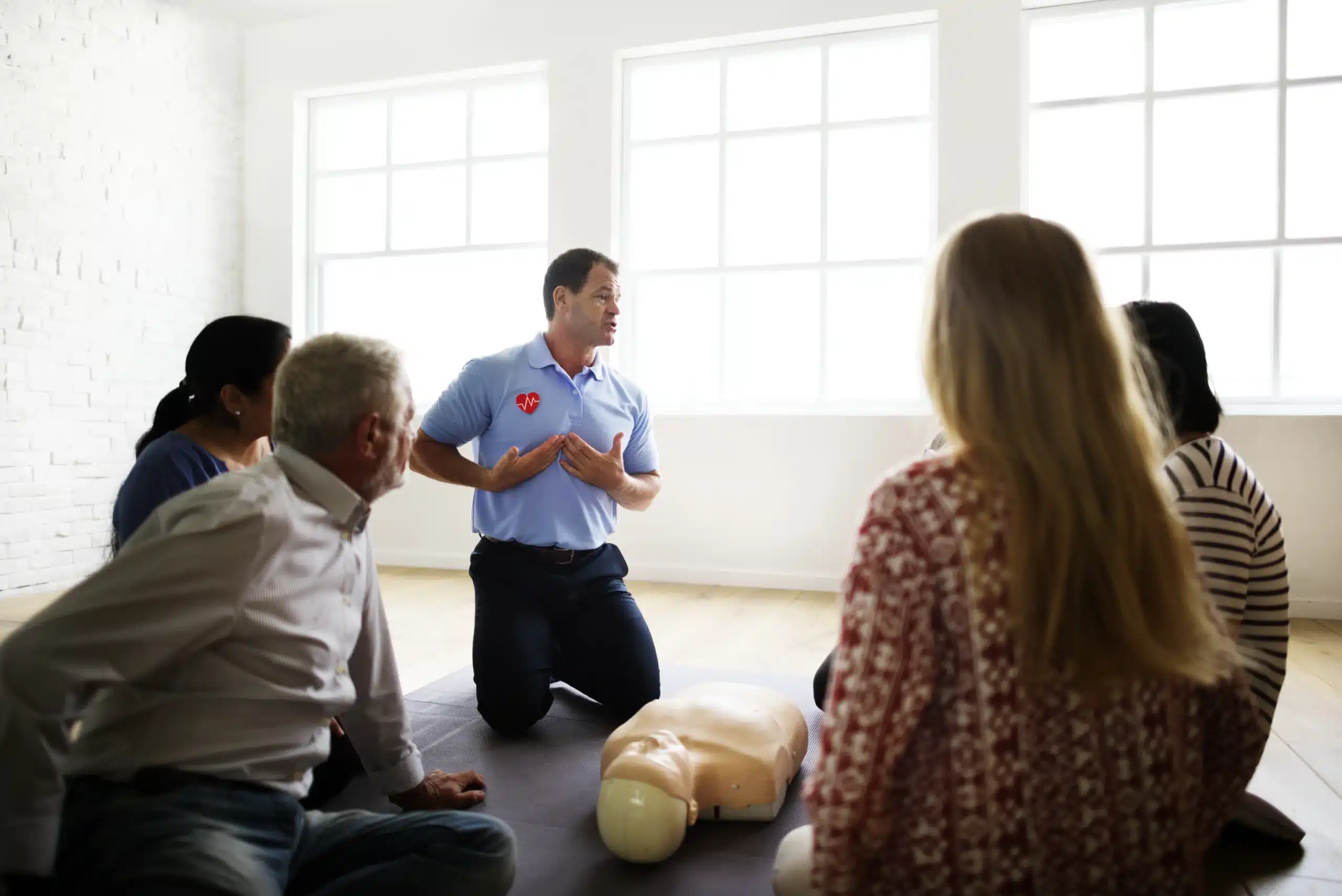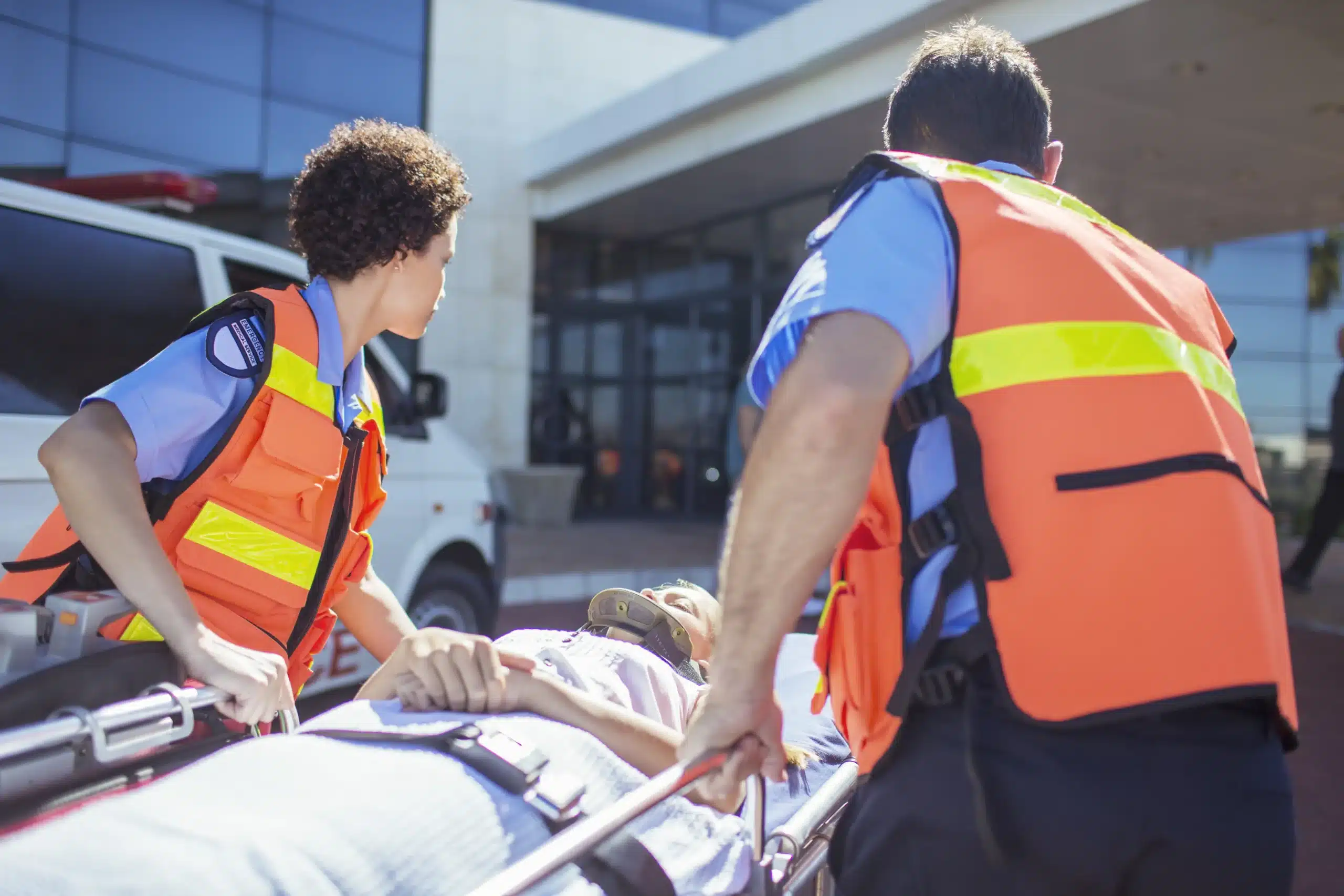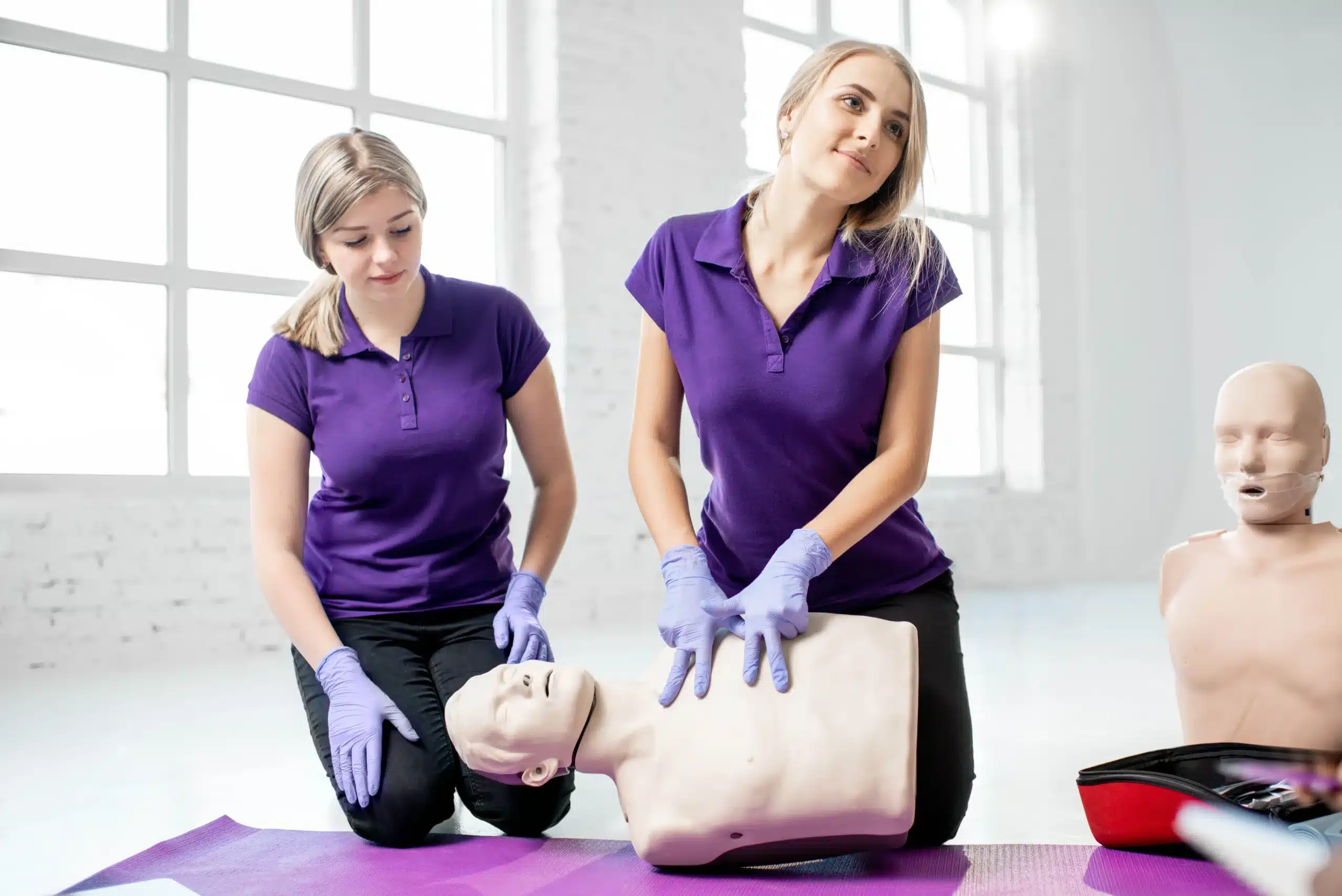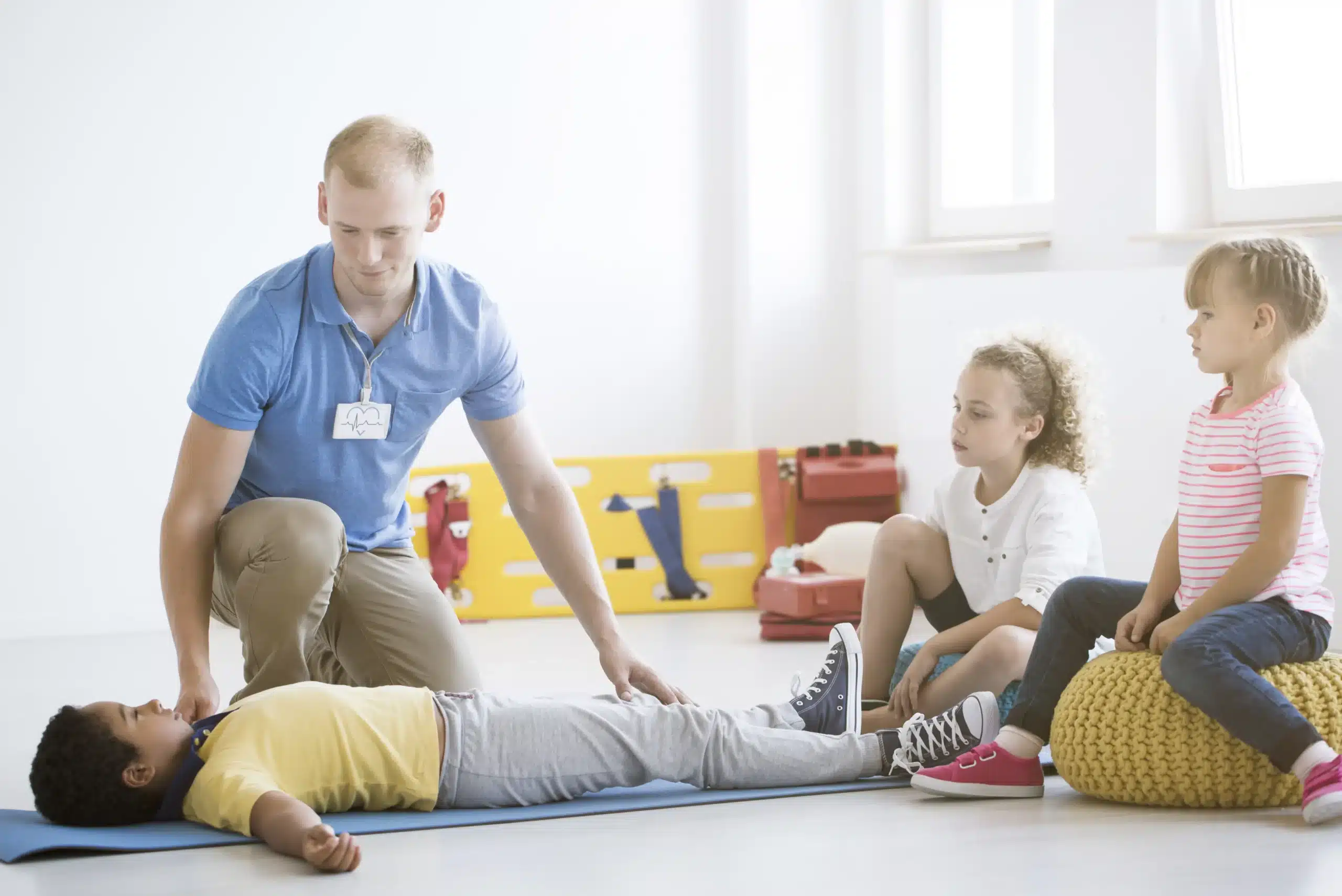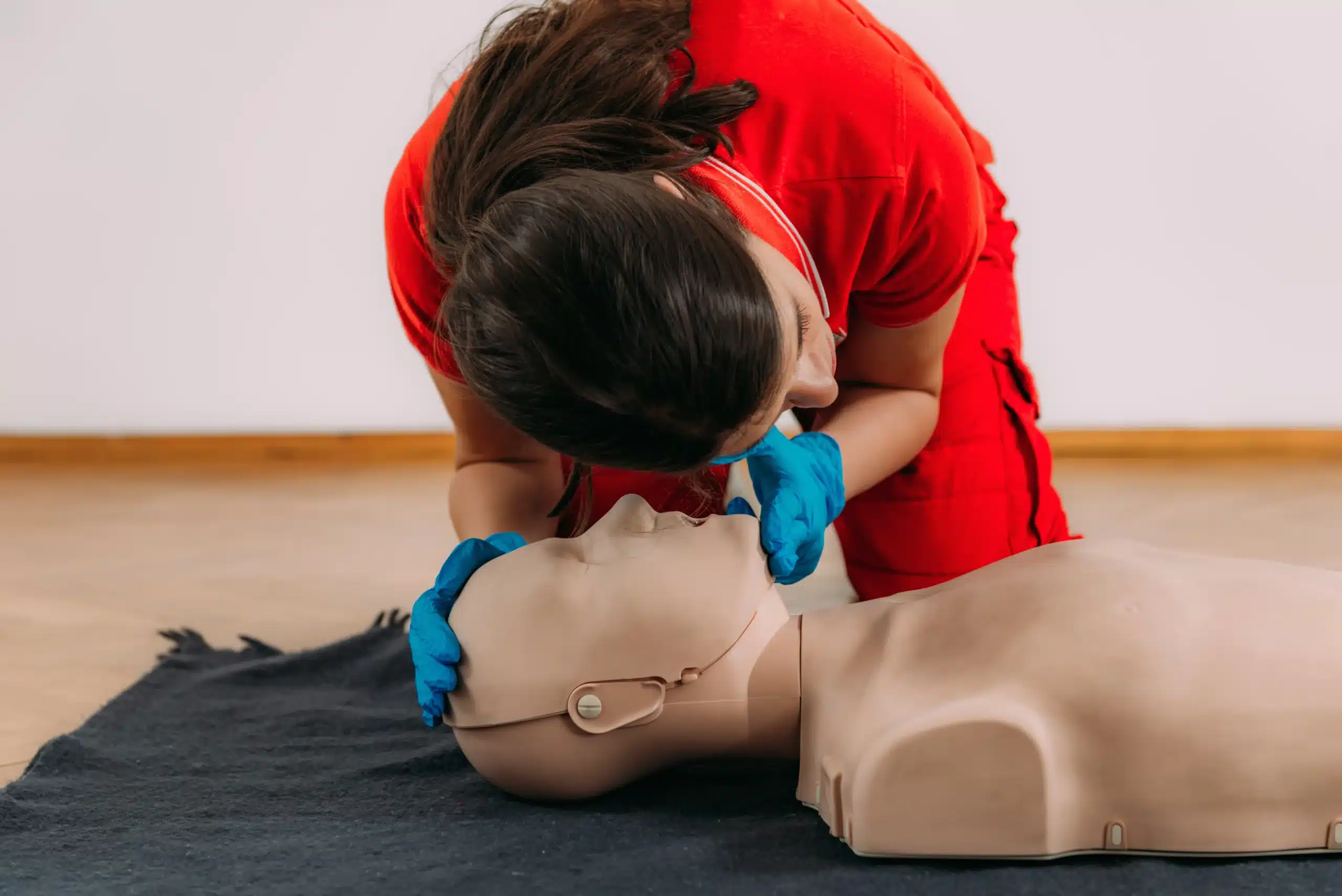Knowing how to respond effectively in a medical emergency can be the difference between life and death. Basic Life Support (BLS) certification equips you with the skills and confidence to provide immediate care in critical situations. This guide will take you through the essentials of BLS certification, from understanding the core concepts to finding BLS classes nearby and choosing the right course for your needs. We’ll explore the benefits of BLS training, what to expect in a class, and how to maintain your certification once you’ve completed the course. Whether you’re a healthcare professional, a caregiver, or simply someone who wants to be prepared, this guide is your starting point for becoming BLS certified.
Key Takeaways
- BLS certification is a powerful tool for anyone: It provides essential life-saving skills applicable in various emergencies, boosting confidence and preparedness for personal or professional needs.
- Choosing the right BLS course is key: Seek accredited providers with qualified instructors and suitable learning environments. Consider factors like cost, schedule, and format (in-person, blended, or online) to fit your needs. Safety Training Seminars offers a low-price guarantee and serves Stockton, Tracy, and Lodi.
- Preparation enhances your BLS learning: Review pre-course materials, bring essential supplies, and engage actively in hands-on practice. Remember to maintain your certification by exploring recertification options to stay current with life-saving techniques.
What is BLS?
Basic Life Support (BLS) certification is a vital credential for healthcare professionals and anyone who wants to learn life-saving skills. It equips you with the knowledge and techniques to respond effectively in medical emergencies. While it’s a crucial skill set for healthcare providers, it’s also beneficial for anyone interested in comprehensive first-aid training. BLS goes beyond basic first aid, providing a deeper understanding of life-saving procedures.
What does Basic Life Support (BLS) mean?
BLS certification focuses on providing immediate care for life-threatening conditions. This includes recognizing when someone needs CPR, knowing how to use an AED, and performing other essential life-saving skills. It’s important to understand that BLS builds upon basic first aid, offering more advanced techniques and a greater depth of knowledge. BLS certification provides the skills to respond to cardiac arrest and other emergencies that require immediate intervention. These skills are crucial for healthcare providers and equally valuable for anyone wanting to be prepared for emergencies.
Essential Life-Saving Skills Taught in BLS Classes
BLS classes cover a range of essential skills, focusing primarily on high-quality CPR for adults, children, and infants. You’ll learn how to recognize the signs of a cardiac emergency and how to provide effective chest compressions and rescue breaths. The curriculum also includes training on how to use an automated external defibrillator (AED) safely and effectively. BLS training covers techniques for relieving choking in both conscious and unconscious individuals. These skills empower you to respond confidently and effectively in various emergency situations.
Why Take BLS Classes?
BLS certification offers numerous benefits, from personal growth to career advancement. Whether you’re a healthcare professional, a childcare provider, or simply someone who wants to be prepared for emergencies, understanding the value of BLS training can be truly empowering.
Respond Better in Emergencies
BLS training equips you with essential life-saving skills, including CPR, AED use, and relieving choking. Knowing how to assess a situation, perform CPR, and use an AED can significantly improve the outcome for someone experiencing cardiac arrest or other life-threatening events. It’s about being prepared to make a difference when every second counts.
Build Confidence in Crises
In-person BLS classes provide hands-on learning and guidance from certified instructors. This interactive approach helps you develop crucial skills and builds the confidence to act decisively during crises. Practicing techniques in a safe environment allows you to gain the muscle memory and decision-making skills necessary to respond effectively under pressure.
Advance Your Career
BLS certification is often a prerequisite or a valuable asset for many healthcare and emergency response professions. For aspiring or current healthcare providers, BLS certification can create opportunities and demonstrate your commitment to patient care. It can also enhance your resume and make you a more competitive candidate.
Meet Professional Requirements
Many healthcare organizations and professional bodies require BLS certification. The American Heart Association (AHA), for example, requires an in-person skills assessment. Meeting these requirements ensures you comply with industry standards and maintain your professional standing while demonstrating your dedication to providing high-quality care and maintaining a safe environment.
Find BLS Classes Near You
If you’re searching for “BLS classes near me,” you’re in the right place. Finding the right course can feel overwhelming, but it doesn’t have to be. This section breaks down your options, from established training centers to other local resources.
Safety Training Seminars in Stockton, CA
Safety Training Seminars offers comprehensive BLS certification courses right here in Stockton. They also provide the American Heart Association’s RQI program, a resuscitation quality improvement program designed for healthcare professionals. With a focus on excellent customer service and a low price guarantee, they are a solid option whether you’re pursuing initial certification or recertification. Serving Stockton, Tracy, and Lodi, their convenient location makes high-quality training accessible.
Other Local Providers
Beyond dedicated training centers, local hospitals and community colleges often offer BLS certification courses, frequently partnering with organizations like the American Heart Association. It’s worth checking with these institutions to see what programs they have available. You might discover convenient and affordable options right in your neighborhood.
Online vs. In-Person Classes
While the flexibility of online learning is appealing, the American Heart Association requires an in-person skills assessment for BLS certification. Some providers offer blended learning, combining online coursework with in-person skills sessions. This format can be a good fit for those balancing busy schedules. Consider what learning style works best for you as you explore your options. For a better understanding of pricing and course formats, research various providers in your area. For instance, Palo Alto CPR Classes offers insights into different training models.
Course Formats and Schedules
When you’re ready to sign up for Basic Life Support (BLS) training, finding a course that fits your schedule is essential. Let’s explore the different BLS course formats and how to find one that works for you.
Advantages of In-Person Training
In-person BLS classes provide a structured learning environment with a certified instructor. This hands-on approach, guided by an instructor, builds confidence and improves retention of skills. Practicing techniques like chest compressions and rescue breathing in a classroom setting allows for immediate feedback and interaction with classmates. Having an expert available to answer questions in real-time is also a significant benefit.
Flexibility of Online and Blended Learning
If you need a more flexible option, online and blended learning courses offer greater convenience. Many organizations, including the American Heart Association, offer online BLS courses that align with the same standards as in-person training. These courses often combine online modules with an in-person skills assessment. This blended format lets you learn the material at your own pace and then demonstrate your skills to an instructor. Keep in mind that the AHA BLS course requires an in-person skills check for certification, even with online components.
Weekday, Weekend, and Evening Options
BLS certification courses accommodate busy schedules. Whether you work full-time, attend school, or have family commitments, you can find classes offered on weekdays, weekends, and evenings. This variety makes it easier to fit BLS training into your life. Look for providers who offer a range of schedules and course formats to find what works best.
What Happens in a BLS Class?
Curious about what to expect in a BLS class? It’s a blend of learning essential concepts and practicing those skills until they become second nature. Here’s a breakdown:
Course Curriculum Overview
BLS classes cover core life-saving techniques. You’ll learn how to recognize the signs of cardiac arrest and other emergencies, how to perform high-quality CPR on adults, children, and infants, and how to use an AED. The curriculum also covers choking relief and other essential first-aid procedures. These skills empower you to respond effectively in various emergencies. Safety Training Seminars follows the American Heart Association guidelines for BLS, ensuring you receive the most up-to-date training. Our comprehensive BLS course provides you with the knowledge and skills to confidently handle these critical situations.
Hands-on Practice
BLS isn’t just about theory—it’s about action. A significant portion of the class involves hands-on practice. You’ll work with training manikins and AED trainers, giving you the chance to apply what you’ve learned in a simulated environment. This practical experience is invaluable for building muscle memory and confidence. Our instructors provide personalized feedback and guidance, ensuring you master each skill. To further enhance your preparedness, we offer practice tests and quizzes to help you prepare for the certification exam. This commitment to hands-on training sets our BLS certification course apart.
Certification Process
After completing the course and demonstrating proficiency in the required skills, you’ll receive an American Heart Association BLS Provider certification card. This nationally recognized certification is valid for two years. The certification process typically includes a written exam and a skills test, where you’ll perform CPR and other techniques in front of a certified instructor. This rigorous process ensures you meet the highest standards of BLS competency. Our streamlined certification process makes it easy to obtain and maintain your BLS credentials.
Choose the Right BLS Provider
Finding the right BLS provider is just as important as the certification itself. It can make all the difference in how well you learn and retain these lifesaving skills. Here’s what to consider:
Accreditation and Certification Standards
First, confirm your BLS provider is accredited by a recognized organization like the American Heart Association (AHA). This ensures the training follows the most current guidelines and meets the highest quality standards. Providers like Safety Training Seminars maintain these certifications, guaranteeing your training is both up-to-date and effective.
Qualified Instructors
Experienced, certified instructors significantly impact your learning. Look for instructors with a strong healthcare background and a passion for teaching. Ask about their experience. A good instructor fosters a supportive environment where you feel comfortable asking questions and practicing. Safety Training Seminars prioritizes instructors dedicated to providing high-quality, hands-on training.
Facility and Equipment Quality
The learning environment matters. A well-equipped facility with up-to-date manikins and resources enhances hands-on learning. In-person BLS classes offer the chance to practice in a realistic setting. Consider the facility’s location, accessibility, and overall comfort. A clean, organized space can significantly improve your learning experience.
How Much Do BLS Classes Cost?
Knowing the cost of BLS classes is a practical first step. It helps you budget and compare options, so let’s break down the factors influencing BLS course fees.
Average Prices in Stockton, CA
BLS certification courses in Stockton, like those offered by Martinez CPR Classes, cover essential techniques, including airway management and rescue breathing. Course prices typically depend on a few factors: location, the training center, and the course format (in-person, online, or blended learning). In the Stockton area, you’ll likely find prices ranging from $70 to $100. Checking with several providers will give you a good sense of competitive rates.
Safety Training Seminars’ Low Price Guarantee
Safety Training Seminars offers a low price guarantee for BLS courses in Stockton, making us a smart choice for both individuals and healthcare professionals seeking initial certification or recertification. We’re committed to providing high-quality training at competitive prices in San Joaquin County. Our focus on excellent customer service means you get the best possible learning experience at an affordable price. See our low price guarantee page for details.
Group Rates and Discounts
BLS training is designed to be accessible and affordable. With various course formats and potential discounts, BLS certification fits most budgets and learning styles. Many providers, including Safety Training Seminars, offer group discounts, a great option if you’re training with colleagues or friends. Explore different options to find what works best for your needs and budget. Asking providers about potential discounts or special rates is always worthwhile.
Top BLS Providers in Stockton, CA
Finding the right BLS course is crucial for your career and your confidence in saving lives. Here’s a rundown of reputable BLS providers in and around Stockton, California:
Safety Training Seminars
Safety Training Seminars offers the American Heart Association’s BLS courses for healthcare providers and other professionals needing CPR and basic cardiovascular life support skills. They also offer the AHA’s RQI program, a resuscitation quality improvement program. With a focus on excellent customer service and a low price guarantee, they’re a solid option for initial certification and recertification. Safety Training Seminars serves Stockton, Tracy, and Lodi.
American Heart Association
The American Heart Association (AHA) itself provides BLS courses. These courses equip healthcare professionals and other qualified personnel with essential CPR and life support skills. You can find AHA-certified training centers through their website.
American Red Cross
The American Red Cross also offers BLS certification courses. These courses are valuable for healthcare providers and other professionals requiring these skills. Check their website for course availability in your area.
National Safety Council
The National Safety Council offers a variety of safety training courses, including BLS. While they may not have a dedicated training center in Stockton, they often partner with local organizations to deliver training. Their website has the most up-to-date information on course availability.
RC Health Services
While not located in Stockton, RC Health Services is an example of a provider offering a range of American Heart Association-certified courses, including BLS. This demonstrates the variety of providers offering these essential certifications. If you’re open to online or hybrid options, exploring providers outside your immediate area might give you more flexibility.
Local Hospitals and Community Colleges
Many local hospitals and community colleges in the Stockton area offer BLS certification courses. These are often run in partnership with organizations like the American Heart Association or the American Red Cross. Contact your local hospitals and community colleges directly to inquire about upcoming courses.
Reviews and Testimonials
See what other students are saying about BLS training and certification courses:
Quality of Instruction
Exceptional instructors make a real difference in how well you learn the material. “Great CPR school, very friendly staff and instructors,” says one CPR student. “I really enjoyed my CPR training class.” Another student emphasizes the clarity and helpfulness of their instructor: “The teacher was wonderful, smart, clear in everything she said, and really helpful, happy to answer questions.” At Safety Training Seminars, we take pride in our experienced and supportive instructors who are dedicated to your success. Learn more about our BLS course.
Effectiveness of Hands-on Training
Hands-on practice is crucial for mastering BLS skills. “In-person BLS classes offer a hands-on learning experience guided by a certified instructor,” explains one CPR training center. This approach ensures you develop the muscle memory and confidence to perform CPR effectively during a real emergency. Many programs, including those at Safety Training Seminars, combine online learning with in-person skills practice.
Overall Value and Convenience
BLS certification offers significant value, equipping you with advanced life-saving skills. It’s beneficial for healthcare professionals and anyone interested in comprehensive training. BLS training is also designed to be accessible and affordable. With various course formats and our low price guarantee, BLS certification fits various budgets and learning styles. We offer convenient weekday, weekend, and evening options to accommodate your schedule.
Prepare for Your BLS Class
Getting ready for your BLS class involves a little prep work before you even arrive. Knowing what to expect and how to prepare can make a big difference in how much you get out of the course. Here’s a quick checklist to help you get ready:
Pre-course Study Materials
Before your BLS class, review any pre-course materials provided by your instructor or training center. These materials often include essential information on course content, skill sheets, and may even have some interactive elements to familiarize you with basic techniques. Think of this as your BLS class sneak peek—it helps you hit the ground running on day one.
What to Bring to Class
In-person BLS classes are very hands-on. You’ll learn techniques and practice skills with a certified instructor. To make the most of your learning experience, bring a few essentials. A notepad and pen are always helpful for jotting down key points or questions. And don’t forget those pre-course study materials—they’ll be a valuable reference throughout the class.
Maintain Your Certification
Your BLS certification isn’t forever. It’s important to stay current with the latest guidelines and techniques in emergency care. Check with your BLS course provider about renewal requirements and how to recertify when the time comes. Many providers offer refresher courses and practice exams to help you prepare for your renewal. Staying certified means you’re always ready to respond effectively in a crisis.
Related Articles
- BLS Training in Stockton: A Practical Guide – Stockton CPR Classes
- BLS Certification in Tracy: Your Comprehensive Guide – Stockton CPR Classes
- BLS Certification Near Me: A Practical Guide – Stockton CPR Classes
- BLS Courses in Lodi: Your Complete Guide – Stockton CPR Classes
- BLS Classes Near Me: A Complete Guide – Stockton CPR Classes
Frequently Asked Questions
What is the difference between BLS and CPR? CPR (Cardiopulmonary Resuscitation) is a specific life-saving technique used when someone’s heart stops beating. BLS (Basic Life Support) is a broader term encompassing CPR and other essential skills like using an AED and relieving choking. Think of CPR as one piece of the larger BLS puzzle.
Why should I choose Safety Training Seminars for my BLS certification? Safety Training Seminars offers high-quality, AHA-compliant BLS training with a low-price guarantee. They focus on excellent customer service and provide convenient class schedules for residents of Stockton, Tracy, and Lodi. Their experienced instructors create a supportive learning environment, and their convenient location and commitment to affordability make them a great choice.
What if I have a busy schedule? Can I still get BLS certified? Absolutely! BLS courses are designed to accommodate various schedules. Many providers offer weekday, weekend, and evening classes. Blended learning options, combining online coursework with in-person skills sessions, provide additional flexibility.
How long is my BLS certification valid, and how do I renew it? BLS certification is typically valid for two years. Recertification involves completing a renewal course before your current certification expires. Contact your BLS provider or the certifying organization (like the AHA) for specific renewal requirements and procedures.
What can I expect during the hands-on portion of a BLS class? The hands-on component is where you’ll practice the skills you’ve learned. You’ll work with manikins to practice CPR on adults, children, and infants, and you’ll learn how to use an AED in a simulated emergency. Instructors provide feedback and guidance to help you master these essential skills.
